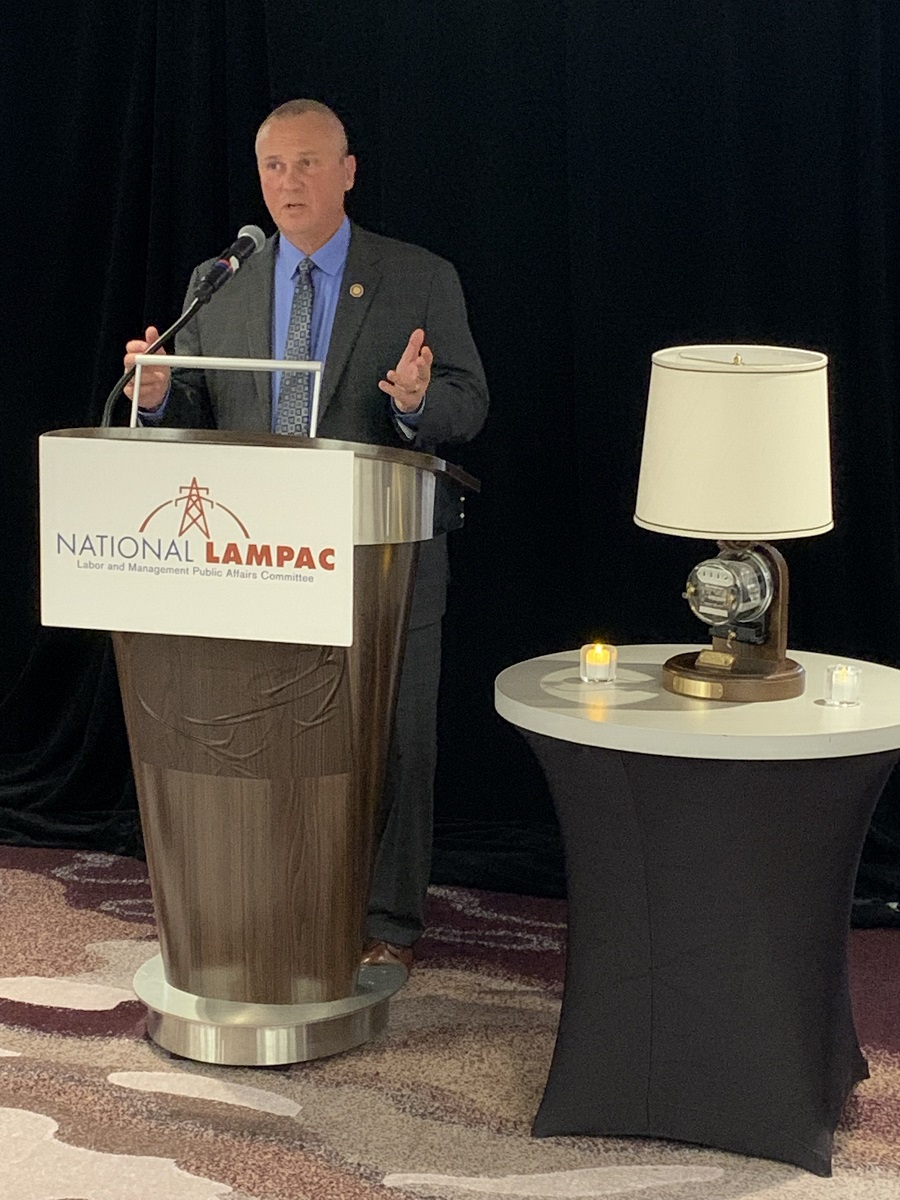Alabama Power and IBEW System Council U-19 receive distinguished Edwin D. Hill Award

Alabama Power and IBEW System Council U-19 receive the Edwin D. Hill Award from the Edison Electric Institute and the International Brotherhood of Electrical Workers. Pictured, from left, are Arnab Ghosal, Alabama Power Grid Inform & Connectivity general manager; Casey Shelton, IBEW System Council U-19 business manager; Jeff Peoples, Alabama Power's new CEO; Mark Crosswhite, Alabama Power's former CEO; Lonnie Stephenson, IBEW International president; Keith Williams, IBEW Local 801 business manager; and Roger Marbutt, Southern Company director of Power Delivery Technical Training. (contributed)
The Edison Electric Institute (EEI) and the International Brotherhood of Electrical Workers (IBEW) this week presented the Edwin D. Hill Award to Alabama Power and to IBEW System Council U-19. This distinguished award recognizes efforts to advance state and local initiatives on behalf of EEI’s member electric companies and IBEW members.
Through the National Utility Industry Training Fund (NUITF) and the Electrical Training Alliance, Alabama Power and the IBEW are providing current and prospective employees with the appropriate training to install and to maintain the fiber infrastructure that provides and improves customer and community access to broadband.
“It is an honor for our team to receive the Edwin D. Hill Award,” Alabama Power CEO Mark Crosswhite said. “It’s important to invest in our workforce, ensuring employees have the training needed to meet the needs of our customers.”

IBEW International President Lonnie Stephenson presents the Edwin D. Hill Award to Alabama Power and IBEW System Council U-19. (contributed)
Alabama continues to face a digital divide as the state ranks 47th nationally in broadband connectivity and 73% of the state population does not have access to an affordable broadband plan.
Electric utilities long have incorporated telecommunications equipment and fiber technology into their operations, particularly in rural areas, to support communications and to provide real-time monitoring and controls for generation and transmission operations.
Enabling utilities to leverage fiber infrastructure, in partnership with telecommunications companies, to carry a large amount of high-speed data over long distances meets customer needs, particularly those in underserved and unserved areas.
“The work between IBEW System Council U-19 and Alabama Power represents the true partnership that has formed over many decades between labor and management,” said IBEW International President Lonnie Stephenson. “Their tireless joint effort to create this innovative apprenticeship has greatly benefited our skilled workforce and has improved reliability and accessibility in the communities many call home. I applaud them for their work and congratulate them for receiving this award.”
EEI President Tom Kuhn said the continued leadership and vision of Alabama Power and IBEW System Council U-19 are bringing high-speed broadband access to many customers in unserved and underserved communities. “Not only are Alabama Power and IBEW System Council U-19 helping to shape the future of our industry, they also are bridging the digital divide, which will improve the lives of the customers and the communities we so proudly serve. Each is exceptionally deserving of this outstanding recognition, and it is an honor to present them with this award.”
Under the leadership of former IBEW International President Edwin D. Hill, the IBEW and EEI created the National Labor and Management Public Affairs Committee (National LAMPAC). National LAMPAC strives to foster collaboration and partnership among electric company executives and IBEW leaders to address the nation’s energy challenges and to achieve the common goals of running a well-managed, efficient business with a safe and highly skilled workforce.
Hill was a transformative trade unionist who modernized and shepherded the IBEW through one of the deepest recessions in history. During his tenure, the IBEW held fast to its history and traditions while making key changes to modernize and to preserve the IBEW’s influence as one of North America’s most powerful voices for working people.





